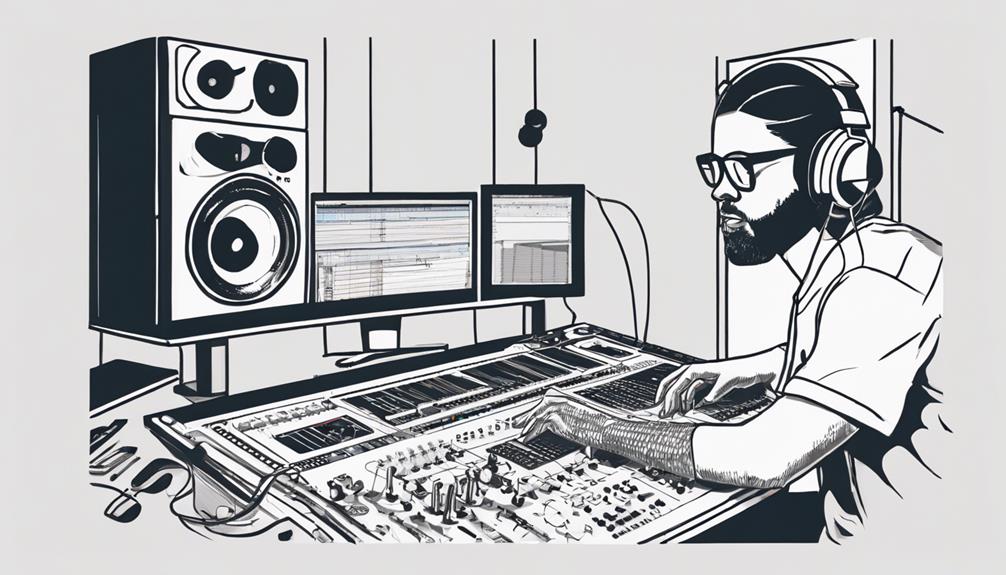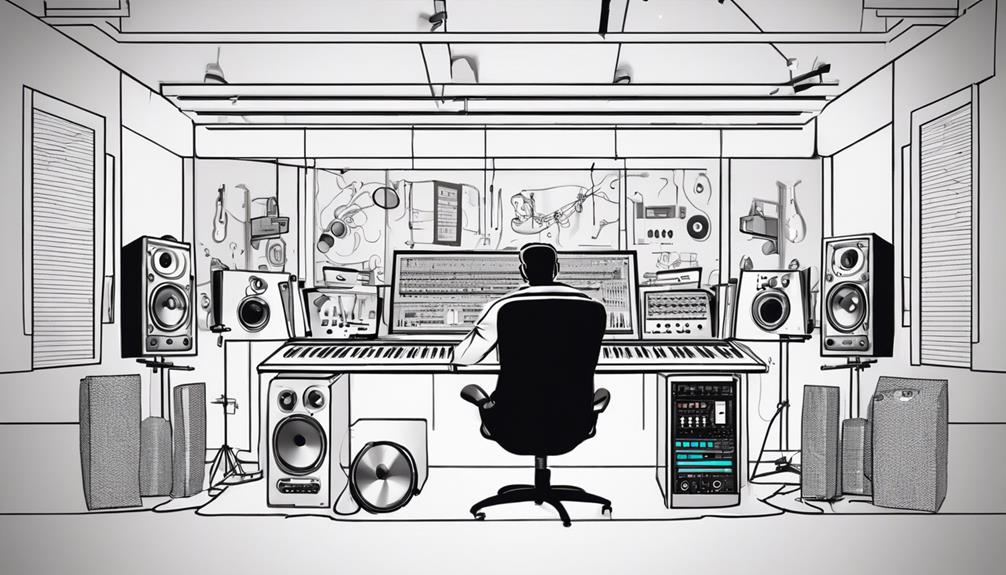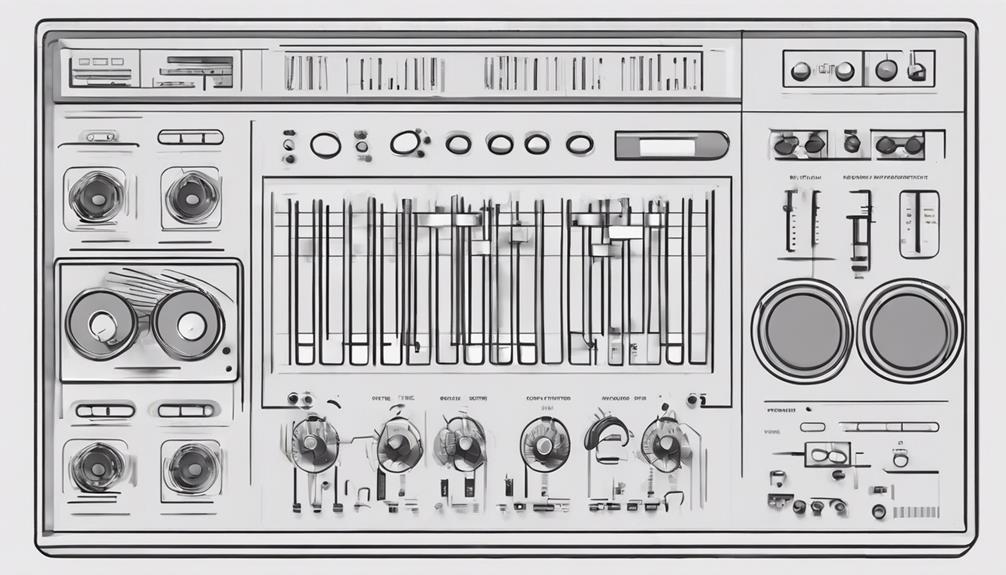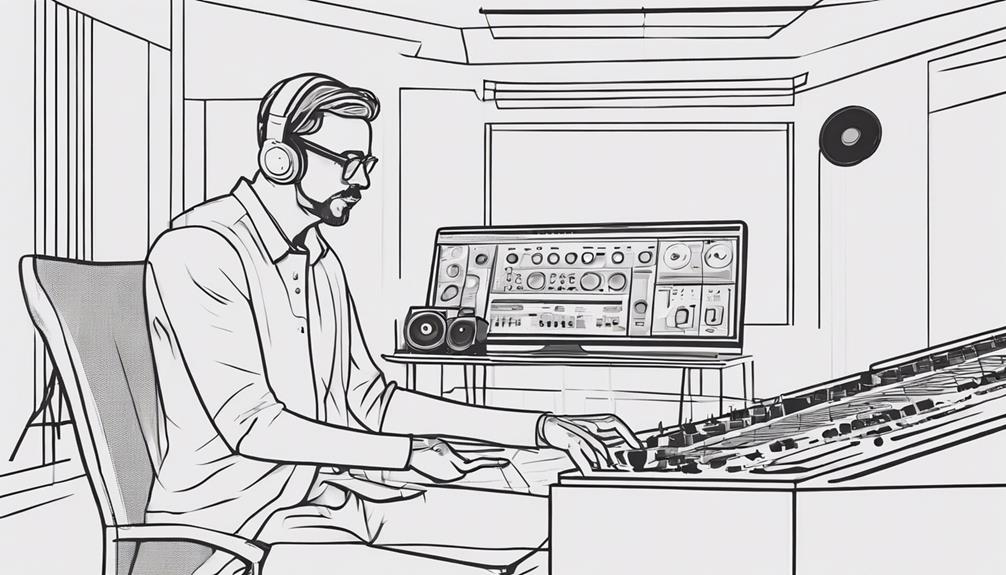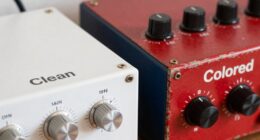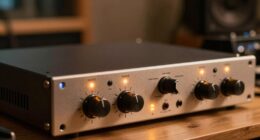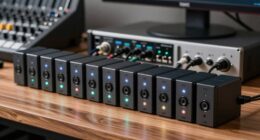Ready to launch into a music production career journey? Begin by setting up your home studio with a computer, DAW software, and audio interfaces. Master your DAW basics through hands-on practice and explore sound nuances to refine your ear. Learn recording essentials like multitrack setup and equipment choices. Immerse yourself in creating unique sounds by experimenting with virtual instruments and effects. Discover sound design techniques for rich textures and dynamics. Finally, strategize your music release for impact using platforms like Spotify for Artists. Start now and uncover the essential steps to excel in music production!
Key Takeaways
- Master mastering DAW software for audio production efficiency.
- Develop a keen ear for music nuances through active listening.
- Master recording basics using DAW and essential equipment.
- Experiment with creating unique sounds using virtual instruments and effects.
- Explore sound design techniques for original music creation and signature style.
Essential Home Studio Equipment
To set up a functional home studio for music production, you'll need essential equipment such as a computer running digital audio workstation (DAW) software. This software is the backbone of your music production setup, allowing you to record, edit, and mix your tracks.
In addition to the DAW, audio interfaces play a vital role in connecting microphones and instruments to your computer, ensuring high-quality audio input. Quality studio monitors or headphones are essential for accurate sound monitoring, enabling you to make informed decisions while mixing and mastering your music.
MIDI controllers are also beneficial tools that allow you to play virtual instruments and have hands-on control over your music software. Moreover, microphones are indispensable for capturing vocals, live instruments, and other audio sources in your home studio setup.
Mastering DAW Software
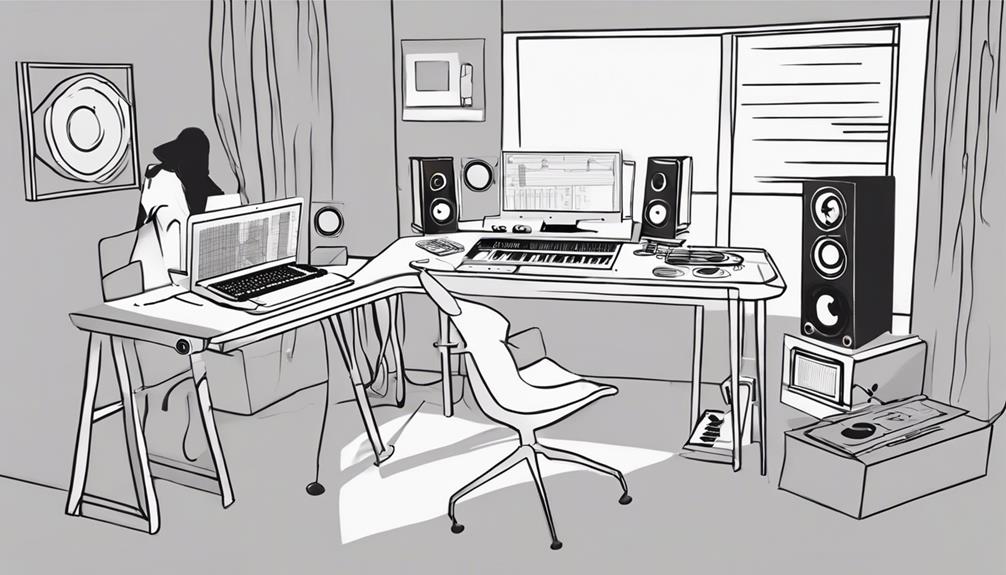
To excel in DAW software effectively, begin by understanding the basics, exploring key features, and engaging in hands-on practice exercises.
Mastering these fundamentals will enable you to navigate your chosen DAW with confidence and efficiency.
Immerse yourself in learning the ins and outs of your software to enhance your music production skills.
DAW Software Basics
Mastering DAW software is essential for honing your music production skills and enhancing your creative output. DAW software basics are fundamental for maneuvering popular platforms like Ableton Live, FL Studio, Logic Pro, and Pro Tools.
Understanding key functions such as audio recording, MIDI editing, mixing, and mastering is vital for producing high-quality music. These software tools provide a platform for music producers to work with virtual instruments, audio effects, and plugins, enabling them to create and manipulate sounds with precision.
By mastering DAW software early on, you can greatly impact the efficiency and creativity of your music production processes. Take the time to familiarize yourself with the interface, shortcuts, and workflow of your chosen DAW to streamline your production workflow and bring your musical ideas to life seamlessly.
Key Features Overview
Understanding the key features of DAW software is essential for maximizing your music production capabilities and efficiency. DAW software serves as the backbone of music production, offering tools for recording, editing, arranging, and mixing tracks.
By mastering DAW software, you gain the ability to manipulate audio, experiment with different sounds, and achieve professional-quality results in your music projects. Popular DAWs like Ableton Live, FL Studio, Logic Pro X, Pro Tools, and Studio One provide a diverse range of functions to cater to various music production needs.
Delving deeper into DAW software allows you to explore advanced techniques such as automation, MIDI editing, and applying audio effects creatively. These advanced skills can greatly enhance the quality and depth of your music production projects.
Familiarizing yourself with the intricacies of your chosen DAW will enable you to work more efficiently and express your creativity in the field of music production.
Hands-On Practice Exercises
Explore hands-on practice exercises that focus on mastering DAW software to sharpen your music production skills effectively. Immerse yourself in essential features of popular DAW software such as Ableton Live, Logic Pro, or FL Studio through the following exercises:
- Practice recording, editing, and arranging audio tracks to solidify your skills in your chosen DAW.
- Experiment with MIDI controllers, drum pads, and virtual instruments within the software for innovative music production.
- Master techniques like automation to streamline your workflow and enhance creativity in your projects.
- Learn the art of mixing, utilizing audio effects to elevate the quality of your music productions.
To further enhance your proficiency, make the most of online tutorials, forums, and courses that explore advanced features and functions of DAW software. By actively engaging in these practice exercises, you'll strengthen your foundation in music production and pave the way for a successful career in the industry.
Developing Your Ear for Music
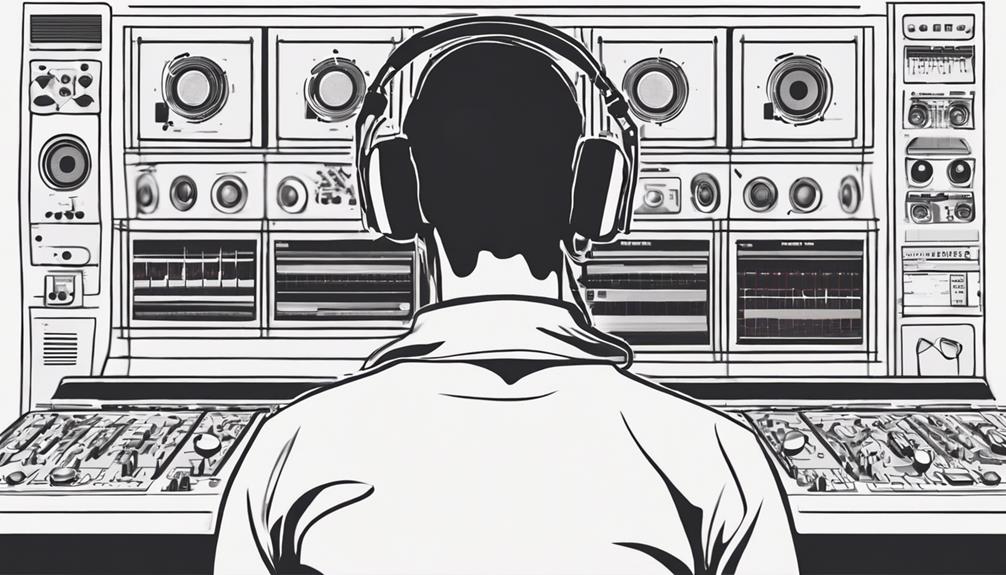
Enhancing your music production skills begins with developing a sharp ear for nuances in sound. Training your ear in music production involves actively listening to pitches, tones, and frequencies to enhance audio quality. By honing your auditory perception, you can make informed decisions in sound design, arrangement, and mixing processes. Practicing active listening across various music genres sharpens your ability to differentiate between different elements within a track.
| Key Aspects | Description |
|---|---|
| Training your ear | Recognizing pitches, tones, and frequencies to improve audio quality. |
| Active listening | Practicing focused listening to identify subtle nuances in mixing and EQ. |
| Sound design | Utilizing your ear to craft unique sounds and textures for music production. |
| Auditory perception | Fine-tuning your sense of hearing through regular practice and experimentation. |
Recording Basics Mastery
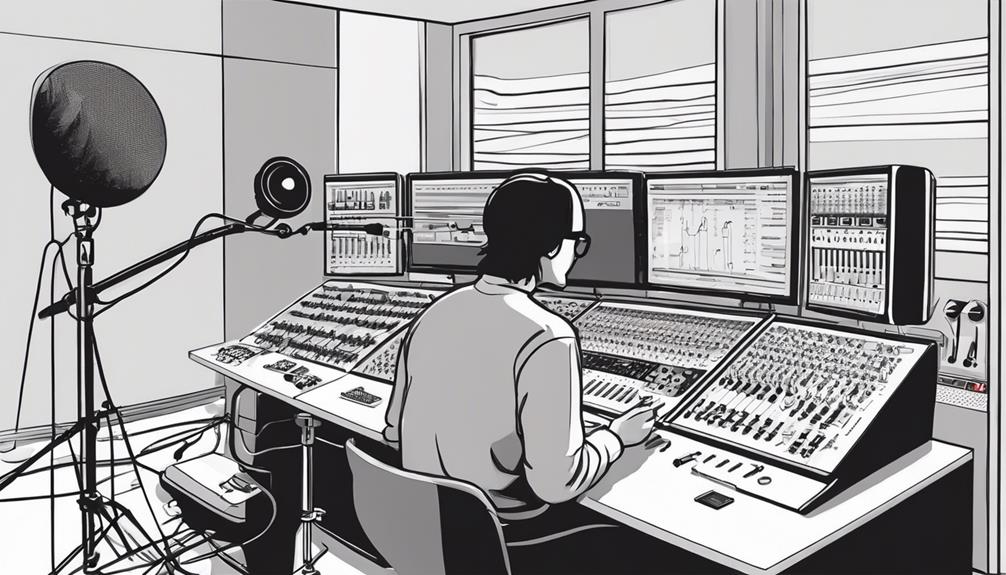
Mastering recording basics like multitrack recording, overdubbing, and audio editing is essential for producing high-quality tracks.
Understanding the ins and outs of a Digital Audio Workstation (DAW) as your primary recording environment is key to honing your craft.
Choosing the right DAW early on and mastering its basic functions will greatly impact your creative process as a music producer.
Essential Recording Equipment
To excel in mastering the recording basics of music production, make sure you have essential equipment like a computer, DAW software, audio interface, and quality headphones or studio monitors in your setup.
Here's a breakdown of the essential recording equipment you'll need:
- Computer: A reliable computer with sufficient processing power and storage capabilities is essential for running recording software smoothly.
- DAW Software: Digital Audio Workstation (DAW) software like Ableton Live, Pro Tools, or Logic Pro allows you to record, edit, and mix your music.
- Audio Interface: This device connects your microphones and instruments to your computer, ensuring high-quality audio input and output.
- Headphones/Studio Monitors: Quality headphones or studio monitors are vital for accurate sound monitoring and mixing in your home studio.
Understanding Sound Engineering
Understanding sound engineering in music production involves mastering the recording basics such as multitrack recording, overdubbing, and audio editing to achieve high-quality sound.
To create professional tracks, mastering the fundamentals of sound engineering is essential. Utilizing a Digital Audio Workstation (DAW) is important as it serves as the primary platform for recording, editing, and arranging audio.
Sound engineering skills encompass tasks like microphone setup, level adjustments, clean audio capture, and applying effects to enhance recordings. The process also involves mixing and mastering, where tracks are balanced, polished, and finalized for release.
Learning audio editing techniques such as comping vocals, quantizing drums, and using EQ and compression are crucial for achieving a professional sound.
Creating Unique Sounds
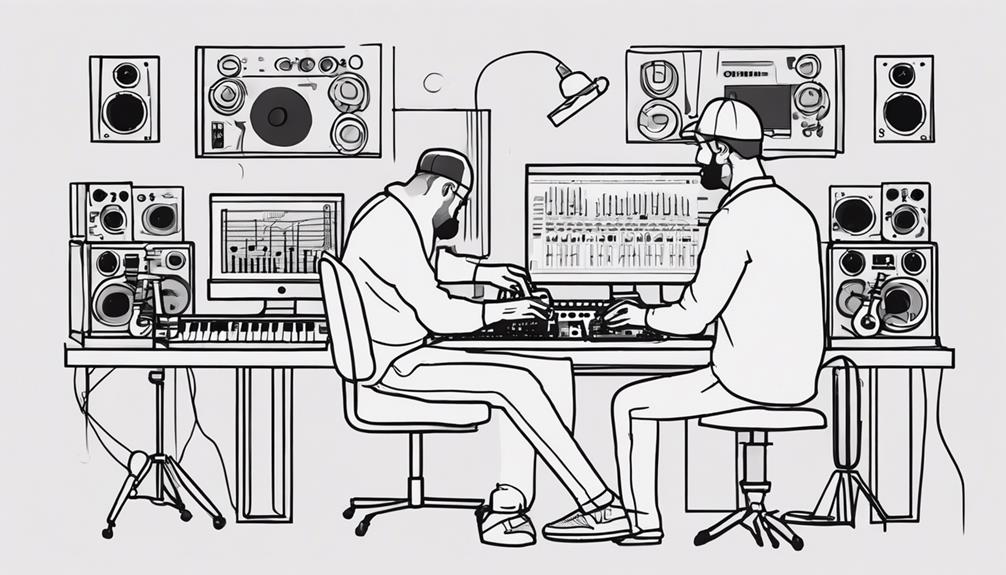
When aiming to create unique sounds in music production, experiment with different virtual instruments, samples, and effects.
To craft original and innovative sounds, consider the following techniques:
- Utilize sound design: Explore layering different sounds together to create rich textures. Experiment with modulation techniques to add movement and dynamics to your sounds.
- Incorporate unconventional sources: Use field recordings and foley sounds to introduce unique elements into your music. These can add depth and character to your tracks.
- Manipulate audio creatively: Try techniques like time-stretching, pitch-shifting, and granular synthesis to transform sounds in unexpected ways. This can lead to fresh and distinctive sounds.
- Develop your signature style: Experiment with various sound manipulation tools and techniques to find your unique sound. Standing out in the music industry often involves creating a recognizable sonic identity.
Strategic Music Release Planning
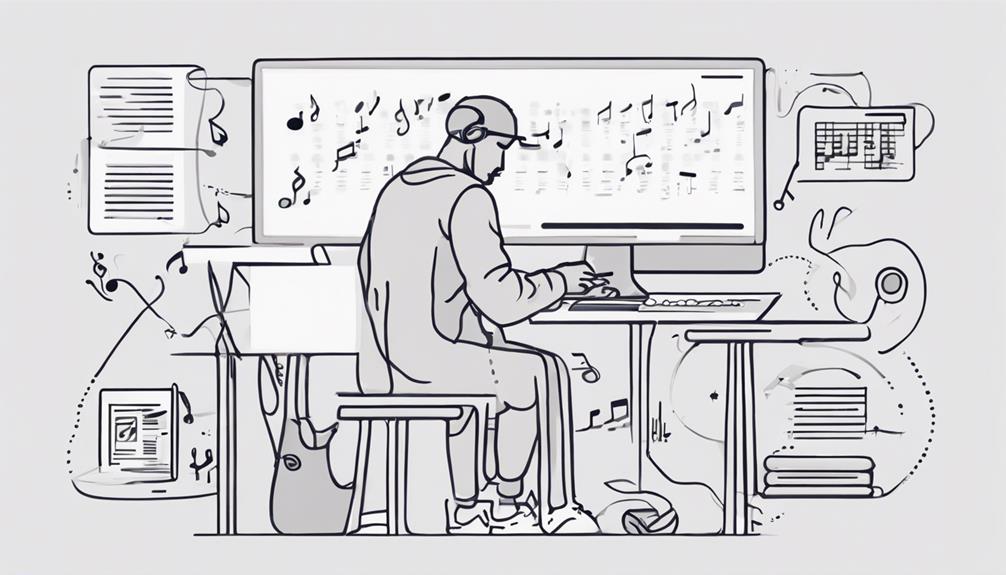
Consider timing your music releases strategically to optimize impact and reach your target audience. Music release planning involves scheduling your releases to coincide with trends, holidays, or events, which can boost visibility and engagement.
To maximize impact, utilize platforms like Spotify for Artists, Apple Music for Artists, and social media analytics to inform your release strategy. Preparing promotional materials such as press releases, visual content, and social media teasers can build anticipation for your music.
Engaging with your audience through email newsletters, live streams, and behind-the-scenes content is essential to create a connection and drive excitement for your releases.
Frequently Asked Questions
How to Start a Music Production Career?
To start a music production career, begin by building a basic home studio with essential gear. Learn to use a DAW for recording and editing. Train your ear by understanding music trends. Master recording basics for high-quality tracks.
How to Become a Music Producer With No Experience?
To become a music producer with no experience, start by learning digital audio workstations (DAWs) and exploring online tutorials. Experiment with creating tracks, network with industry pros, and consider online courses to deepen your expertise.
Is 30 Too Old to Become a Music Producer?
You're not too old at 30 to become a music producer. Age doesn't limit your potential in this industry; talent and dedication matter most. Embrace the journey and let your passion guide you towards success.
How Do You Get Hired as a Music Producer?
To get hired as a music producer, showcase your best work in a professional portfolio, network with industry pros, pursue internships for hands-on experience, stay updated on music trends, and actively seek job postings in the industry. Building a strong online presence through social media and music platforms can also help you gain visibility and connect with potential collaborators or clients. If you’re wondering how to start music production, consider investing in basic equipment, learning digital audio workstations (DAWs), and practicing by creating small projects. Consistent effort and a willingness to adapt can open doors to exciting opportunities in the music industry.
Conclusion
Congratulations on taking the first step towards a career in music production!
With your essential home studio equipment and mastering of DAW software, you're well on your way to creating unique sounds that will captivate audiences.
Keep honing your recording skills, developing your ear for music, and strategizing your music releases to guarantee success in the industry.
The journey may be challenging, but the rewards of pursuing your passion will be worth it in the end!

